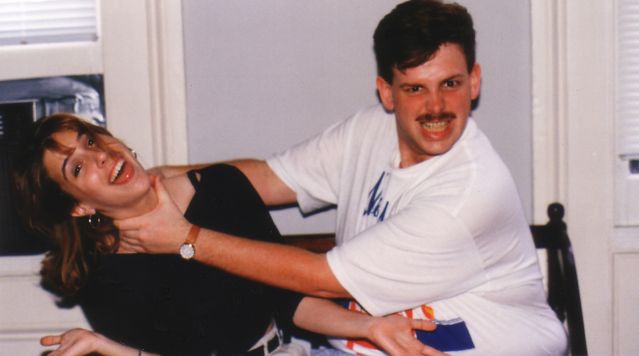Media
How Are You Portraying Yourself When Using Social Media?
Do Your Online Posts Reflect Your Compassion or Your Bitterness?
Posted July 25, 2015

If your social media newsfeeds are anything like mine, you're likely aware that there was recently a perceived threat that had the potential to undo everything that's good in the world. I'm talking, of course, about ex-NAACP leader Rachel Dolezal, who not so long ago resigned her Spokane, Washington post after being criticized for portraying herself as black (and insists in a recent interview with Vanity Fair that she still identifies as black).
I must admit that it's odd to me that so many people I know were incensed about this matter and thus took to their online platforms to harshly criticize and even make fun of Ms. Dolezal. Especially since none of the people I saw ranting about this seemed to actually know Ms. Dolezal, personally. Sure, I understand there was a train wreck factor to the media coverage, which made it virtually impossible to look away from this debacle. But does that mean we had to take to Twitter and facebook in an effort to demonize this person?
It was, after all, just a short while ago that Caitlyn Jenner (formerly known as Bruce) let us know that she identified as being female. And the descriptors of "Brave" and "Groundbreaker" and "Hero" flooded social media in the wake of her announcement and her receiving the Arthur Ashe Award at the ESPN ESPYS. Ms. Jenner has been embraced with open arms (or open dialogue, as it were)—despite her being part of a modern TV dynasty that is known for manipulating the media for ratings and profits.
Now don't get me wrong. I'm not comparing Ms. Dolezal's identity declaration directly with Ms. Jenner's. And yet, at the same time, I do question why one is a hero and the other is a sign of the apocalypse. When did vitriol become a national pastime and filling our social media feeds with hatred become de rigeur? Has initially greeting someone we don't understand (or even that we don't agree with) with kindness become a thing of the past?
I'm reminded of the caution to not judge someone before walking in his or her shoes. There's clearly a history between Ms. Dolezal and her parents that none of us can possibly understand. And not knowing this history, we can't necessarily comprehend what would lead Ms. Dolezal to make some of the choices she's made—even if some of these choices are questionable in nature. But does this mean she deserves our prosecution? That we all should throw verbal and written stones in her direction? That we should pollute our social media newsfeeds with hatred and disgust for someone none of us has met in person?
This all hits home with me given that I'm a former 450-pound man who although fat, always identified as a thinner person. Being someone who averaged a waist size of 60-inches, I often experienced cruel judgment from strangers (many who were even abusively verbal). These people didn't know me. And yet they took it upon themselves to make me feel shame and even fear. None of which were helpful in my quest to get healthier, mentally and physically.
Even if Ms. Dolezal is suffering from some form of delusion (and I don't know that she is), should we not feel compassion for her?
I had someone very delusional in my life. And this person—my own mother—was one of the major factors that resulted in my putting on excessive weight (creating a protective barrier in the form of blubber in an attempt to shut everything out). My mother was a virtual monster who not only verbally and physically tortured my sister and I, but also put us through horrific circumstances that many would possibly not survive. But we did survive—even with mental scars that led us to commit some questionable acts as we struggled to find freedom from the angst of our tortured childhoods. And the real freedom, the real survival, and the real key to my unlocking what was holding me back, was developing compassion for my mother (and even looking upon her with kindness—despite everything she'd done).
It's when I saw my mom as someone who was mentally ill and was simply doing the best she knew how to do that I was set free, mentally. And as a result I was even able to be kind to my mom in later years—despite the fact that her sickness and lies continued until her death. But it was with kindness and compassion that I was able to forgive my mother and, perhaps just important, accept her for who she is/was (and even forgive myself for some of the questionable choices I made over the years as a result of her upbringing).
The act of letting go of years and years of hatred was actually more beneficial to me than to my mother. And it was key in not only taking off the excess weight (my personal demon), but keeping it off.
So next time we see someone in the media who we think deserves our critique, our judgment, or even our vitriol, let's take a deep breath in and let a deep breath out—and be reminded that we're all struggling to define ourselves and to live our lives in the happiest ways we know how.
We are all part of the human race. And the more humane we are when thinking—and posting online—about others, the more kindness we're likely to receive (even when thinking about our own selves).




